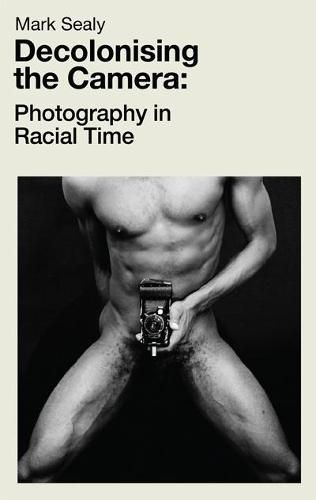Readings Newsletter
Become a Readings Member to make your shopping experience even easier.
Sign in or sign up for free!
You’re not far away from qualifying for FREE standard shipping within Australia
You’ve qualified for FREE standard shipping within Australia
The cart is loading…






This title is printed to order. This book may have been self-published. If so, we cannot guarantee the quality of the content. In the main most books will have gone through the editing process however some may not. We therefore suggest that you be aware of this before ordering this book. If in doubt check either the author or publisher’s details as we are unable to accept any returns unless they are faulty. Please contact us if you have any questions.
This book examines how Western photographic practice has been used as a tool for creating Eurocentric and violent visual regimes, and demands that we recognise and disrupt the ingrained racist ideologies that have tainted photography since its inception in 1839.
Decolonising the Camera trains Mark Sealy’s sharp critical eye on the racial politics at work within photography, in the context of heated discussions around race and representation, the legacies of colonialism, and the importance of decolonising the university. Sealy analyses a series of images within and against the violent political reality of Western imperialism, and aims to extract new meanings and develop new ways of seeing that bring the Other into focus.
The book demonstrates that if we do not recognise the historical and political conjunctures of racial politics at work within photography, and their effects on those that have been culturally erased, made invisible or less than human by such images, then we remain hemmed within established orthodoxies of colonial thought concerning the racialised body, the subaltern and the politics of human recognition.
With detailed analyses of photographs - included in an insert - by Alice Seeley Harris, Joy Gregory, Rotimi Fani-Kayode and others, and spanning more than 100 years of photographic history, Decolonising the Camera contains vital visual and written material for readers interested in photography, race, human rights and the effects of colonial violence.
$9.00 standard shipping within Australia
FREE standard shipping within Australia for orders over $100.00
Express & International shipping calculated at checkout
This title is printed to order. This book may have been self-published. If so, we cannot guarantee the quality of the content. In the main most books will have gone through the editing process however some may not. We therefore suggest that you be aware of this before ordering this book. If in doubt check either the author or publisher’s details as we are unable to accept any returns unless they are faulty. Please contact us if you have any questions.
This book examines how Western photographic practice has been used as a tool for creating Eurocentric and violent visual regimes, and demands that we recognise and disrupt the ingrained racist ideologies that have tainted photography since its inception in 1839.
Decolonising the Camera trains Mark Sealy’s sharp critical eye on the racial politics at work within photography, in the context of heated discussions around race and representation, the legacies of colonialism, and the importance of decolonising the university. Sealy analyses a series of images within and against the violent political reality of Western imperialism, and aims to extract new meanings and develop new ways of seeing that bring the Other into focus.
The book demonstrates that if we do not recognise the historical and political conjunctures of racial politics at work within photography, and their effects on those that have been culturally erased, made invisible or less than human by such images, then we remain hemmed within established orthodoxies of colonial thought concerning the racialised body, the subaltern and the politics of human recognition.
With detailed analyses of photographs - included in an insert - by Alice Seeley Harris, Joy Gregory, Rotimi Fani-Kayode and others, and spanning more than 100 years of photographic history, Decolonising the Camera contains vital visual and written material for readers interested in photography, race, human rights and the effects of colonial violence.